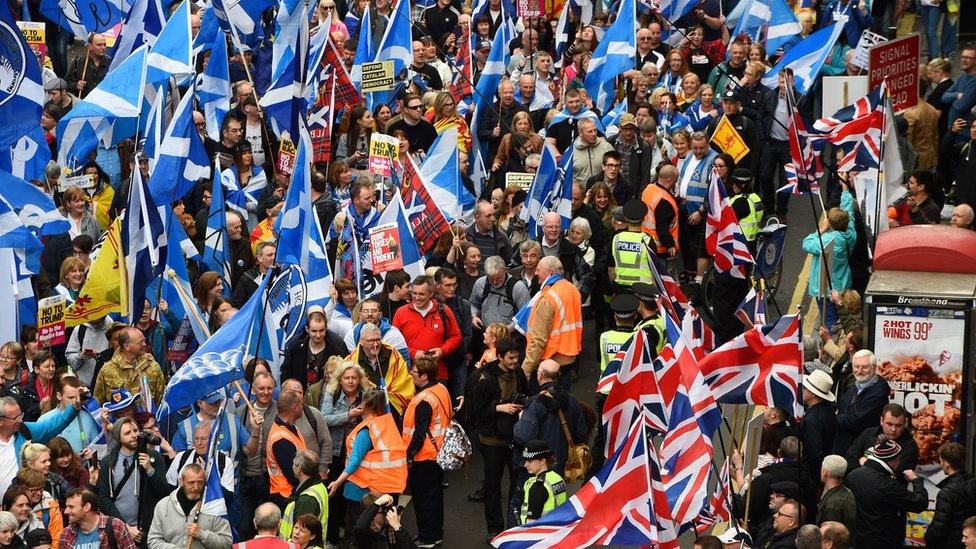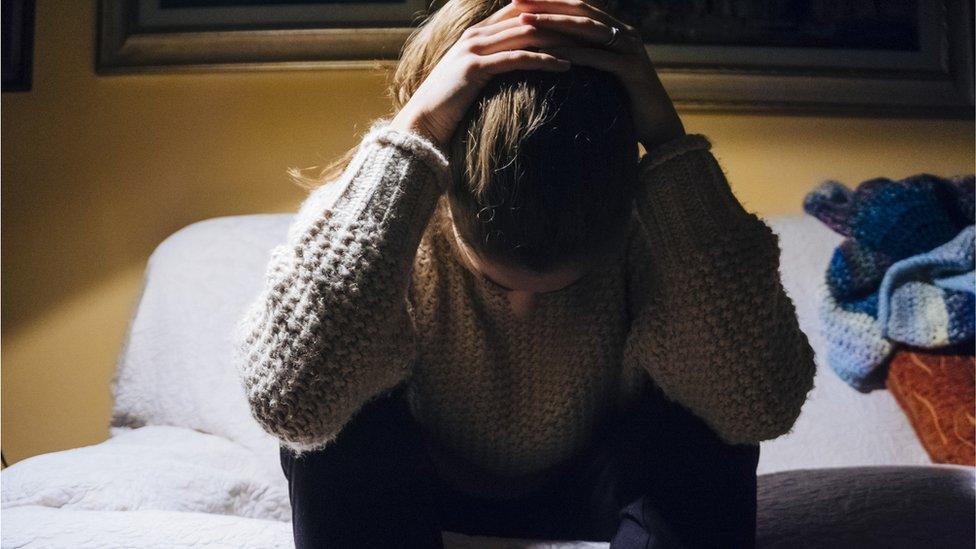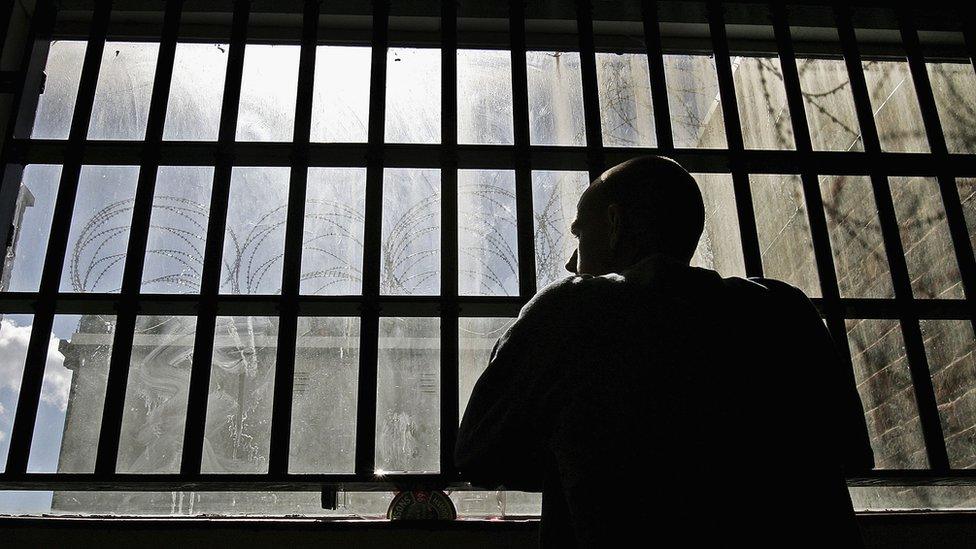Week ahead: MSPs to examine indyref2 'framework' bill
- Published

MSPs turn to the task of amending the bill setting out a framework for future referendums this week.
It could pave the way for a fresh vote on Scottish independence, though a short bill will be required to carry out such a ballot.
As drafted the bill would give ministers the power to set the date, question and campaign period of polls.
The constitution committee will begin voting on stage 2 amendments to the Referendums Bill on Wednesday morning.
Another key issue around the bill is whether the Electoral Commission must be consulted on the question for another independence vote.
The Scottish government previously argued the 2014 question had already been tested and therefore could be used again.
But the committee unanimously said ministers "must recognise the weight of evidence in favour" of a fresh test in its stage 1 report, external.
An amendment lodged by Constitutional Relations Secretary Mike Russell proposes a "shelf life" of two parliamentary terms for previously tested questions - meaning indyref2 would have to occur before the 2021 election if the same wording were to be used without testing it.
Other proposed amendments include:
requiring a turnout of at least 50% for results to be valid
allowing voters to push for advisory referendums on any issue which receives over 300,000 signatures
an obligation for a "confirmatory referendum" on constitutional matters
So, what else is happening at Holyrood this week?
Tuesday - family courts

The new Children Bill aims to improve children's experiences in family courts
The Justice Committee meets on Tuesday morning to consider the Children Bill, which aims to improve the experience of children involved in family courts.
The new proposals include allowing special measures such as screens and live video links to be used in Child Welfare Hearings, and to regulate child contact centres.
It is also hoped to improve understanding of domestic abuse issues by ensuring child welfare reporters are regulated and better trained.
In the afternoon, the eight-day strike affecting 12 Scottish universities and the experiences of victims in the justice system will be raised during topical questions.
MSPs will then celebrate the science and research sector in a debate titled "Scotland as a science nation".
Expect future immigration policy to feature throughout, as pro-EU parties express concern about the loss of scientists from the EU while pro-Brexit MSPs suggest a new system will attract researchers from around the world.
After this, Labour MSP Elaine Smith leads a members debate on Catholic schools, with her motion stating they have a "right to retain their Catholic ethos". It follows concerns about sectarianism.
Wednesday - mental health

After portfolio questions on local government and social security, the Scottish Lib Dems have the floor.
The party will lead a debate on mental health, calling for improvements to waiting times and expansion of the workforce.
Official figures in June revealed the number of young people waiting more than a year for specialist mental health treatment has more than trebled in a year.
The Scottish government has committed to establishing a 24/7 crisis support service, improving self-referral for children and young people, and investing in perinatal mental health.
The member's debate in the evening will be led by SNP MSP Rona Mackay, focusing on the 16 days of activism against gender-based violence.
Thursday - prisoner voting

MSPs will debate the Scottish Elections (Franchise and Representation) Bill for the first time.
This legislation could see prisoners serving a sentence of less than 12 months getting the right to vote in Scottish Parliament and local government elections.
It would else extend the franchise to all those with a legal right to living in Scotland, including those who have been granted refugee or asylum status.
To pass, the bill would require the support of at least two-thirds of MSPs.
At noon, Nicola Sturgeon will face questions during FMQs, to be followed by SNP MSP Tom Arthur leading a debate to mark St Andrew's Day, which happens on Saturday.
Also, Rural Economy Secretary Fergus Ewing will make a statement to parliament on female farmers.
The final report of a taskforce looking at supporting women in agriculture is due shortly. It was tasked with considering training and skills, the development of an Equality Charter, and how to address childcare issues in rural areas.
We begin the day with the Social Security Committee, which is taking evidence on the feasibility of running Citizen's Basic Income pilots in Scotland.